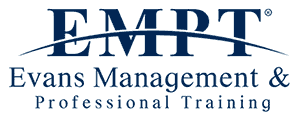Current Fostering National Minimum Standard 20.5 requires that foster carers’ personal development plans set out how they will be supported to undertake ongoing training and development that is appropriate to their development needs and experience. These standards also (NMS 20.6) require that the reviews of each foster carer’s approval include an appraisal of performance against clear and consistent standards set by the agency, and consideration of training and development needs, which are documented in the review report. It also states that foster carers’ “personal development plans should be reviewed, and the effectiveness of training and development received is evaluated”.
This contrasts with residential children’s homes where” the registered person should have a workforce plan which can fulfil the workforce related requirements of regulation 16, schedule 1 (paragraphs19 and 20). This plan should:
detail the necessary management and staffing structure, (including any staff commissioned to provide health and education), the experience and qualifications of staff currently working within the staffing structure and any further training required for those staff, to enable the delivery of the homes Statement of Purpose;
- detail the processes and agreed timescales for staff to achieve induction, probation, and any core training (such as safeguarding, health and safety and mandatory qualifications).
- detail the process for managing and improving poor performance.
- detail the process and timescales for supervision of practice (see regulation 33 (4) (b)) and keep appropriate records for staff in the home.
The plan should be updated to include any new training and qualifications completed by staff while working at the home and used to record the ongoing training and continuing professional development needs of staff – including the home’s manager.”
The social work England professional standards (4.5) highlight that social workers will contribute to an open and creative learning culture in the workplace to discuss, reflect and share practice, thus, a professional development plan (PDP) (or Professional Development Plan) is a record of measurable actions to support and enable individual/s to achieve their work setting or career goals and a tool that supervising social workers should benefit from using themselves as well as enabling foster carers to use to reflect on their personal/professional development as foster carers.
In connection to the personal development of foster carers, the training development standards for foster care is clear what is required of foster carers regarding the skills and knowledge for those working with children, young people, and families to practice at a basic level. Thus, foster carers should be able to develop themselves (TSD Standard Seven). To meet aspects of this standard, foster carers need to consistently demonstrate the skills and knowledge that indicates their practice meets or is above the following standards:
- 7.3a Understand the purpose of your personal supervision and annual foster carer review and know how to make the best of these opportunities.
- 7.3b Know what additional support and training is available to you.
- 7.3c Be able to recognise when you need support and the importance of asking for help and advice.
- 7.3d Develop knowledge, skills and understanding pertinent to your foster care role (e.g., treatment foster care, fostering teenagers.
- 7.3e Develop knowledge, skills and understanding to enable you to “broaden” your foster care role.
- 7.4a Understand the need for continuing professional development and the ways in which it can improve your practice.
- 7.4b Understand and be able to reflect on how your day-to-day work as a foster carer is influenced by feedback from people you come into contact with and from children, young people and their families.
- 7.4c Work with your supervising social worker or other relevant person to agree and follow a personal development plan.
- 7.4d Be willing to continually improve your practice and understand how to do this.
Given these required standards – The Fostering Network (2021) research highlights that since 2016 –the number of carers who have a personal development plan has increased. Nevertheless, 35% of foster carers do not have a PDP despite this being a National Minimum Standard (NMS 20.5).
Kolb’s Reflective cycle shown below highlights the need for you to reflect on your experience from participating on learning events/training and to say/write down what you think you have learnt. You should reflect, following participation on a learning event, on how such participation influences your current practice.
The Experiential Learning Cycle
- Concrete Experience – (a new experience or situation is encountered, or a reinterpretation of existing experience).
- Reflective Observation of the New Experience – (of particular importance are any inconsistencies between experience and understanding).
- Abstract Conceptualisation (reflection gives rise to a new idea, or a modification of an existing abstract concept The person has learned from their experience).
- Active Experimentation (the learner applies their idea(s) to the world around them to see what happens).
A good personal development plan format can contribute to enabling you to methodically think about your practice aspirations/goals that you need to reach. A Personal Development Plan should be a continual reflective reference or audit trail about your progress regarding the knowledge and skills and understanding you have developed to broaden your role within the service setting, and you should update it every time you reach important milestones. Regularly updating your Personal Development Plan enables you to target new goals that help you grow professionally and as an individual. The following five steps can contribute to creating a professional development plan:
- Self-assessment to develop yourself: Evaluate your professional interests, knowledge, and skills. Identify areas in which you can improve to obtain your goals (targets).
- Goals/targets: Set SMART (Specific, Measurable, Achievable, Relevant and Timely) goals that are trackable and achievable by completing small steps. List goals/targets in order of priority with the highest first so you can quickly identify them. Categorise goals as short-, mid- or long-term so you can develop more detailed steps to achieve each one.
- Action plan: Create a plan of action for each goal. Identify the resources you need to achieve each goal, you should be collaborating and discussing these targets with your supervisor/line manager. Your strategy to participate on specific training, mentorship, online learning, or networking opportunities are some of the proposed actions you can add to your plan.
- Implementation: Implement your plan of action by taking small steps to achieve each goal. Regularly review your progress and adjust your plan as needed. Your supervisor/line manager should meet with you frequently to discuss your progress and reflection from your participation on learning events.
- Evaluation: Evaluate your progress by measuring your success against the goals you set (What have you learnt from doing the targeted actions you planned). Try to complete the evaluation forms from training courses that you participate on. The effectiveness of this plan should also be evaluated by your supervisor and or line manager. Celebrate your successes and learn from your failure/vulnerabilities. Then start a new personal development plan.

